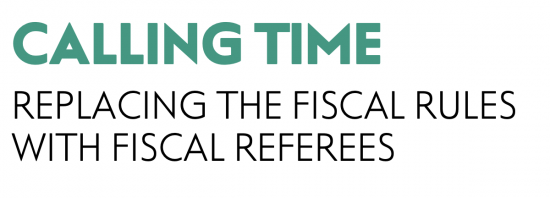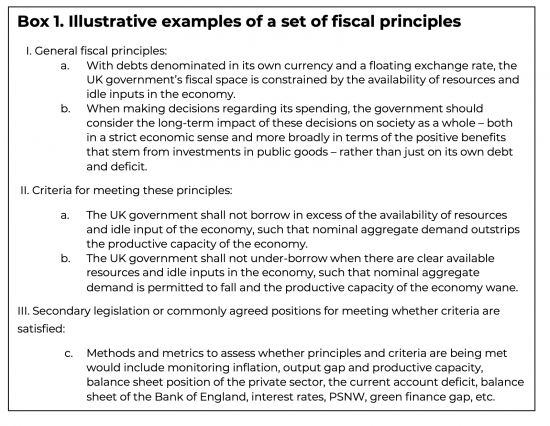The New Economics Foundation has issued a new report today:


The title really undersells this. I rarely unambiguously say something needs reading: I do say that about this. The authors are Frank van Lerven, Alfie Stirling and Lydia Prieg. They have done a great job in assembling evidence about the current state of the economy, and even more so about the relationship between the national debt and interest rates - where data completely contradicts much of what economics claims. Their plotting of the failure of the UK's fiscal rules is almost amusing. Look at the charts, if nothing else.
But where they really score is in the bit I really did not expect to appreciate, which is in their recommendation for moving on beyond fiscal rules. I worry that some of their proposed structure would be open to capture, but what they suggest is that there should be what they term 'fiscal referees' whose job it will be to determine whether economic policy is working to best social benefit.
Saying so they suggest we do not need a fiscal rule. I agree. Instead, they suggest that we need guidelines for action. That's much more sensible, so I agree. And then they suggest that those guidelines, or fiscal principles as they describe them, might look like this:

I hope I will be forgiven for suggesting that is modern monetary theory in practice, because it very clearly is. But it's also really very good, and a very valuable contribution to debate. If we had fiscal referees debating such issues we would see better economic policymaking as a result. That has to be a win.
This is the best report from the New Economics Foundation for years.
Thanks for reading this post.
You can share this post on social media of your choice by clicking these icons:
You can subscribe to this blog's daily email here.
And if you would like to support this blog you can, here:



This is good news!
This all sounds very sensible, but I wonder how many of the people who matter and have influence will discuss its implications or even read it.
2
🙂
Or do I mean 🙁
This is indeed a very good and succinct summary of Modern Monetary Theory.
Item I.a. states the general principle of a monetarily sovereign economy.
Item I.b. brings forward a statement of social/political values.
Item II.a. and II.b. state the main aspects of the policy to be pursued on the basis of I.a. and I.b.
Item III then provides implementation details.